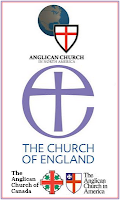We gather this morning in the aftermath of a national tragedy: the killing of 28 people—20 of them children—at Sandy Hook Elementary School in Newtown, Connecticut. Like you, I am still in the process of sorting out all my emotional responses to this horrifying incident. In times like this, we all come together seeking not so much answers as a community in which to make sense of the questions.
The only reliable way I know through something like this is to start with my own response, trusting that in many ways it resembles yours, and then holding that response up to the Gospel light, asking God what we should all do next.
It appears that most of those who died on Friday were first graders. There is nothing like a primary school classroom: it’s not only the bright colors and the fun things that make it special. It’s the sense that you’re in a place where children are making an important transition, moving from innocence to experience, engaging the world afresh and anew. So my first response to Friday’s shooting is a kind of wounded horror at the thought that these emergent children were killed so brutally and that the children around them were terrorized as well. I grieve, of course, for the adults too. But it is the loss of the children—the lives not lived, the hopes extinguished—that touches me first.
My thoughts move next to the parents. As I remember my own days as the parent of a young child, I recall my own visceral sense that my primary purpose in life was to protect and nurture the life of my son. When you have a child you are emotionally exposed. Not only can I not fully take in the way the children were traumatized; I cannot even begin to grasp the pain experienced by their parents.
And then from the parents my thoughts go to the shooter. While I resist the temptation to speculate about his mental or emotional state, it’s hard to imagine someone carrying out such an act who wasn’t in an awful lot of psychic pain themselves. We reflexively turn to calling such people “evil,” as if in so doing we mark them as somehow different from us. Was the shooter “evil”? In the sense that he caused a lot of innocent suffering, yes I suppose he was. But can we call him “evil” as a way of excluding him or his actions from the realm of humanity? No, I don’t believe we can. We need to understand his action—and the actions of all violent people—as a part of what it means to be human. Like it or not, we are bound up with each other in a complex matrix of motivations and actions. To understand is not to excuse. Let’s not apologize for the shooter, but let’s not try to pretend that he’s someone other than us, either. If he was mentally ill, he was also a member of a family, and we know that existing laws make it very difficult for families to control or institutionalize their violent members.
And thinking about “us” makes me ask the last, the harder question. Why do we as a society tolerate these massacres in increasing numbers? These mass shootings are happening with increasing frequency, and they more and more seem to be targeted directly against children. What does it say about us as a society that we continue to tolerate so much violence against children? What does it say about us, as a community of human beings, that we are willing to put our children (not to mention their teachers) in so much jeopardy? In every school I know they have lockdown drills, and the threat of invasive gun violence is taken very seriously. What kind of a society would let itself get to this point, to where teachers and students routinely have to practice what they will do when a shooter comes on campus? If you stand back from it for a minute, you realize that our continued shared tolerance of this violence directed against our children is insane.
All of which leads me, finally, to ask the Gospel question: what are we, as people of faith, to do? As a way into answering that question, I turn to this morning’s Gospel passage, the account of John the Baptist addressing the crowds who are coming to him out of some kind of personal and spiritual and social desperation. What does he say to them? “Bear fruits worthy of repentance.” What he means is: stop doing the crazy thing you’re doing and do a new thing, a new thing that will bear fruit, that will bring about the change you seek.
The crowd asks him, “What then should we do?” And John gives this direct and plain-spoken answer:
“Whoever has two coats must share with anyone who has none; and whoever has food must do likewise.” Even tax collectors came to be baptized, and they asked him, “Teacher, what should we do?” He said to them, “Collect no more than the amount prescribed for you.” Soldiers also asked him, “And we, what should we do?” He said to them, “Do not extort money from anyone by threats or false accusation, and be satisfied with your wages.” [Luke 3: 10-14]
Now you don’t have to be a New Testament scholar or an ethicist or a moral philosopher to understand what John is saying here. He’s saying: it’s not that complicated. You already knew the answer when you asked the question. Share what you have, live honorably, value the well-being of the other person as highly as your own. We make our ethical dilemmas seem more complicated than they really are. In today’s Gospel, we’re asked, simply, to repent, to turn around, and then to bear fruits worthy of repentance. We’re asked to live mutually and honorably and compassionately for the well-being of all.
Which leads me to say, on behalf of this faith community at least: enough is enough. As followers of Jesus, we have the moral obligation to stand for and with the victims of gun violence and to work to end it. We have tolerated school shootings, mall shootings, theater shootings, sniper shootings, workplace shootings, temple and church shootings, urban neighborhood shootings, for far too long. The massacre of these 28 people in Connecticut is, for me at least, the last straw. And I believe it is for you. Enough is enough. The Christian community—indeed the entire American faith community—can no longer tolerate this persistent and escalating gun violence directed against our people. Enough is enough.
For a variety of reasons our political culture has been unwilling and unable to address the question of gun control, but now it is time that you and I, as followers of Jesus, help them to do that. In his emotional statement on Friday, President Obama called for “meaningful action” in response to the Sandy Hook Elementary School massacre, and I pledge my and this community’s help in crafting and taking that action.
Our political leaders need to know that there is a group of people in America who will serve as a counterweight to the gun lobby, who will stand together with our leaders and support them as they act to take assault weapons off the streets. As followers of Jesus, we are led by one who died at the hand of human violence on the cross. We know something about innocent suffering. And we know our job is to heal it and stop it wherever we can.
In my statement on Friday, I said in part, “Washington National Cathedral pledges to pray for the victims, their families, the assailant, and the survivors. And we pledge to work with our national leaders to enact more effective gun control measures.” To my way of thinking, the best way for us to mourn the Sandy Hook shooting is to mobilize the faith community for gun control.
In her statement on Friday, Bishop Budde announced that she is calling on our national leaders to enact more effective gun control measures. We know from experience that such calls go unheeded. But what if this time, you and I took up this issue and wouldn’t put it down until something was done? … Today we grieve, but soon we act.
“What if this time, you and I took up this issue and wouldn’t put it down until something was done?” What would Jesus do? What would John the Baptist do? What should you and I do? You knew the answer even before you asked the question. “Bear fruits worthy of repentance.” “Today we grieve, but soon we act.” As people of faith we can no longer tolerate the epidemic of gun violence in America. If we are truly America’s “National” Cathedral, as we say we are, then we must become the focal point of faithful advocacy of gun control, calling our leaders to courageous action and supporting them as they take it.
Everyone in this city seems to live in terror of the gun lobby. But I believe the gun lobby is no match for the cross lobby. I don’t want to take away someone’s hunting rifle, but I can no longer justify a society that allows concealed handguns in schools and on the streets or that allows people other than military and police to buy assault weapons or that lets people get around existing gun laws by selling weapons to people without background checks at gun shows. As Christians, we are obligated to heal the wounded, protect the vulnerable, and stand for peace. The cross is the sign and the seal of that obligation. And we know both from faith and experience that the cross is mightier than the gun. The gun lobby is no match for the cross lobby.
On this Third Sunday of Advent, we await the birth of the one who will die on that cross at the hands of sinful and violent people. Let us rededicate ourselves as agents of Jesus’ love and justice and healing in the world. Let us pray for the children and adults who died on Friday. Let us pray for the parents and the surviving children and the pain they continue to endure. Let us pray for the shooter and the miasma of sickness and pain he suffered. Let us pray for the mentally ill and their families, and let us help those families more effectively cope with their sickest members. And let us pray for ourselves, that we may have faithful courage to act, so that the murderous violence done on Friday may never be repeated, and that all God’s children may live lives of wholeness and blessing and peace. Amen.
Source: Washington National Cathedral






















